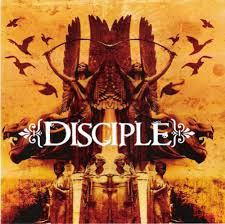记忆方法
1、dis- "apart" + cip- => discip- "grasp intellectually, analyze thoroughly" => 进而引申为: learn.
2、discip- + -le(diminutive) => people that learn.
3、含义:pupil, student, follower.
2、discip- + -le(diminutive) => people that learn.
3、含义:pupil, student, follower.
中文词源
disciple 学徒,门徒,追随者
来自拉丁语discere, 学习,获知,来自PIE*dek-skos,教,自我学习,*dek, 得体,教导,词源同doctor, dogma, *skos, 表反身,见bask, busk. 原义为学生,追随者,尤指耶稣的十二门徒。后词义通用化。
英语词源
- disciple (n.)
- Old English discipul (fem. discipula), Biblical borrowing from Latin discipulus "pupil, student, follower," said to be from discere "to learn" [OED, Watkins], from a reduplicated form of PIE root *dek- "to take, accept" (see decent). But according to Barnhart and Klein, from a lost compound *discipere "to grasp intellectually, analyze thoroughly," from dis- "apart" (see dis-) + capere "to take, take hold of" (see capable). Compare Latin capulus "handle" from capere. Sometimes glossed in Old English by þegn (see thane).
权威例句
- 1. a disciple of the economist John Maynard Keynes
- 经济学家约翰∙梅纳德∙凯恩斯的信徒
- 2. Your disciple failed to welcome you.
- 你的徒弟没能迎接你.
- 3. He was an ardent disciple of Gandhi.
- 他是甘地的忠实信徒.
- 4. In the exuberance of his mirth , the unfortunate disciple had swallowed two biscuits at once.
- 原来这个不幸的耶稣门徒, 一时过分高兴一口吞了两块饼干.
- 5. Her seat was next to her friend Dr Roux, who had been Pasteur's most devoted disciple.
- 她坐在她的朋友罗大夫的旁边, 他是巴斯特最忠实的门生.

